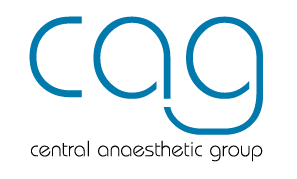ENQUIRIES (03) 9416 3963
BOOKINGS (03) 9416 1584
Frequently Asked Questions
Our anaesthetists answer common questions patients have before an operation.
What are the fees for my anaesthetic?
It is important to understand the costs associated with your anaesthetic prior to your procedure. The fee for your anaesthetic is dependent on your anaesthetist, the procedure, complexity of the anaesthesia service and time spent with you. Fee estimates can be obtained by contacting the CAG office on (03) 9416 3963 between 8.30am and 4pm.
What are my out of pocket cost for my anaesthetic?
The out of pocket cost of your procedure will depend on your anaesthetist, your health fund (if you are insured) and the type of procedure you are having. The final ‘gap’ (out of pocket expense) will largely depend on the level of your health fund rebates.
Is anaesthesia safe?
Anaesthetic techniques have advanced significantly over the past decade and it is generally a safe procedure. You can take comfort in the fact that Australian anaesthetists are some of the most highly trained doctors in the world. Your specialist anaesthetist has undergone a minimum of 13 years of graduate and post graduate studies, is a medical doctor and a Fellow of the Australian and New Zealand College of Anaesthetists.
Can I be with my child while they undergo their anaesthetic?
In most situations, a parent is able to accompany their child during the induction process, that is, when they are being put to sleep. There may be rare exceptions to this. Your anaesthetist will discuss your options with you prior to the procedure. Please note that parents are not able to stay for the duration of the anaesthetic such as for being present during surgery or before their child is awake in recovery.
Why must I fast before my anaesthetic?
Your surgeon and anaesthetist will explain to you the fasting requirements for your procedure. It is important to fast prior to your anaesthetic. Food or fluid in your stomach may be vomited into your lungs during your procedure causing complications.
Your procedure will be postponed if you are unable to abide by the fasting guidelines.
Will I be able to choose the type of anaesthetic for my procedure?
Your anaesthetist will discuss your preferences for anaesthetic with you prior to your procedure.
What should I tell my anaesthetist?
Your anaesthetist will meet you prior to your procedure to discuss your anaesthetic and medical history. You may also be given a preoperative questionnaire to complete prior to your procedure.
Some things your anaesthetist may want to know include:
- how healthy you are and if you have had any recent illness with a particular focus on heart or respiratory problems
- previous operations you have undergone and whether you experienced any problems with anaesthetic
- whether you have any abnormal reactions or allergies to drugs
- whether you have a history of reflux or heartburn, asthma, bronchitis, heart problems or any other medical conditions,
- whether you are taking prescribed or street drugs including cigarettes and alcohol and whether you are taking an oral contraceptive pill
- whether you have any loose or capped teeth, wear dentures or plates
What happens after the operation?
You will be carefully monitored after your surgery by your anaesthetist and recovery staff. You will feel drowsy after you wake from your anaesthetic, and may have a dry throat, feel nauseous or have a headache. These symptoms are temporary and will pass. Sometimes dizziness, blurred vision or short term memory loss may occur after anaesthetic. These symptoms are normal and will pass quickly. If you are at all concerned about any after effects you might experience please contact your anaesthetist.
What is anaesthesia awareness?
Awareness under general anaesthesia is rare and refers to when a patient can recall their surroundings or an event related to their procedure whilst they are under a general anaesthesia. It is sometimes referred to as 'waking up' during surgery. Although it can be upsetting, patients usually do not feel pain when experiencing anaesthesia awareness. If you have any concerns at all about anaesthesia awareness please discuss these with your anaesthetist.
What should I do when going home?
For day surgery procedures it is important to organise for a family member or friend to escort you home from the hospital. Taking a taxi or public transport home without the care of a responsible adult is not considered safe following an anaesthetic. Also, for at least 24 hours, it is recommended that you do not drive your car, make any important decisions, use dangerous equipment or tools, sign legal documents or drink alcohol. Please discuss any concerns you may have with your anaesthetist.
31 Derby Street
COLLINGWOOD VIC 3066
FAX (03) 9923 2742
